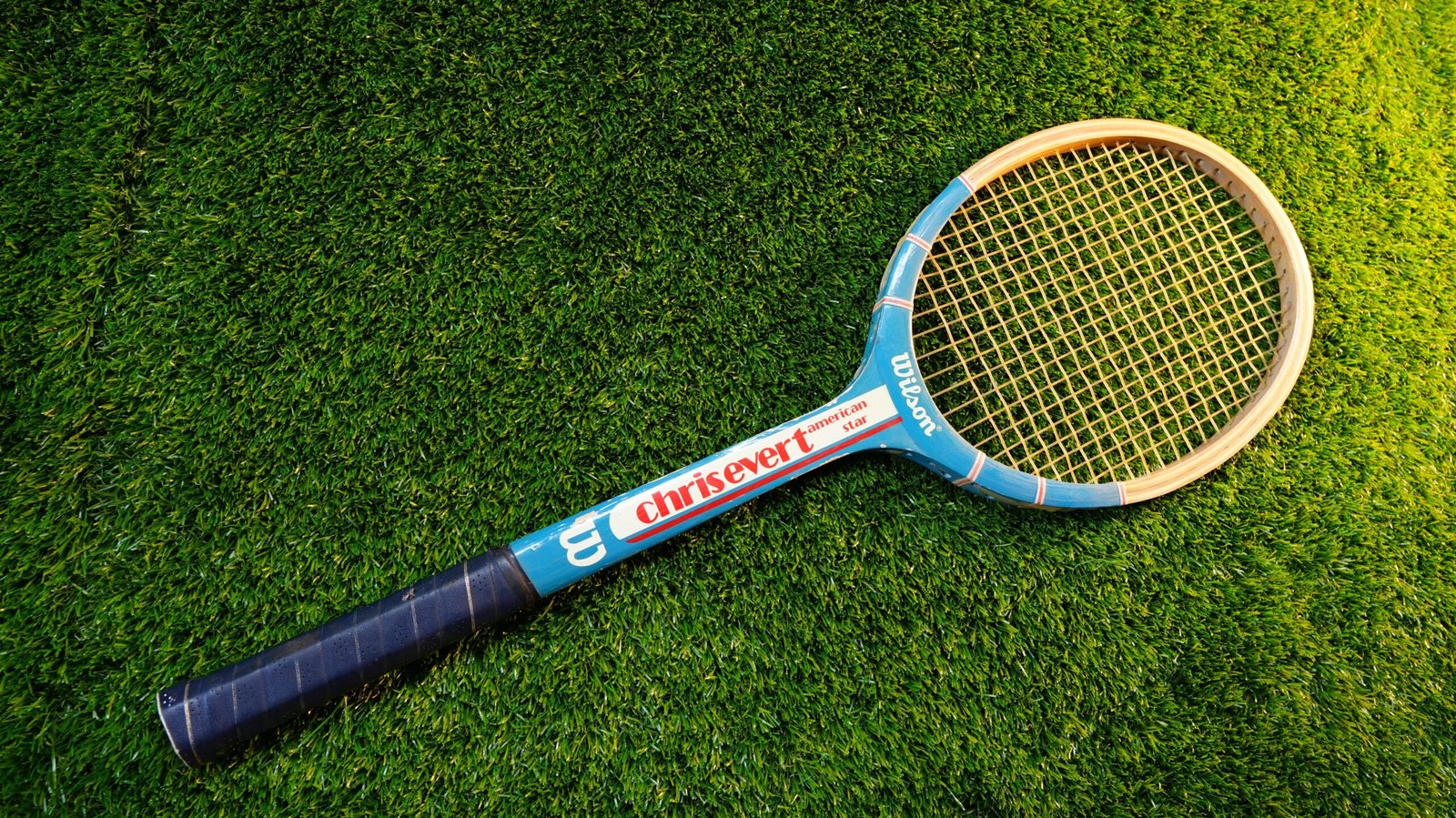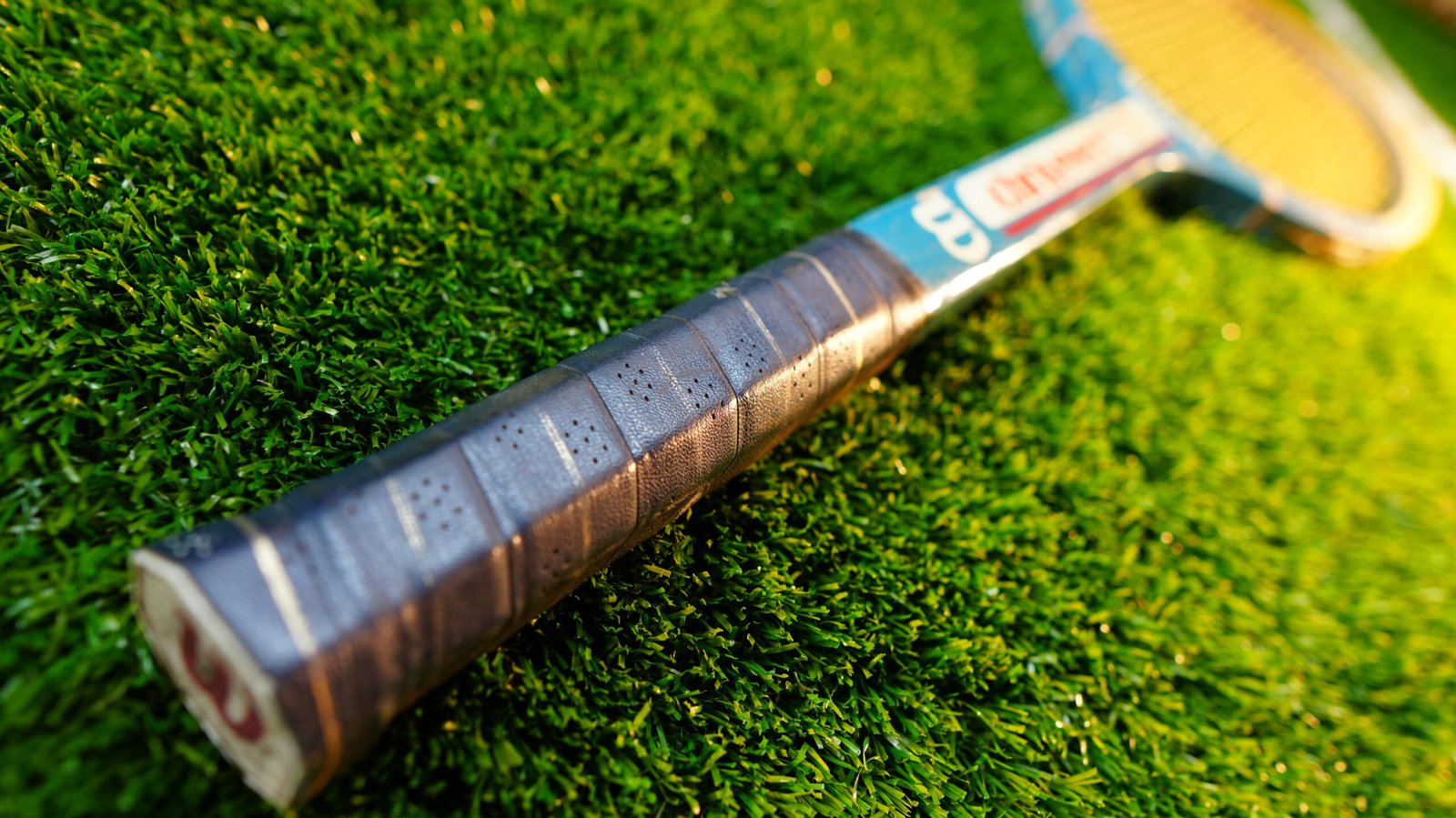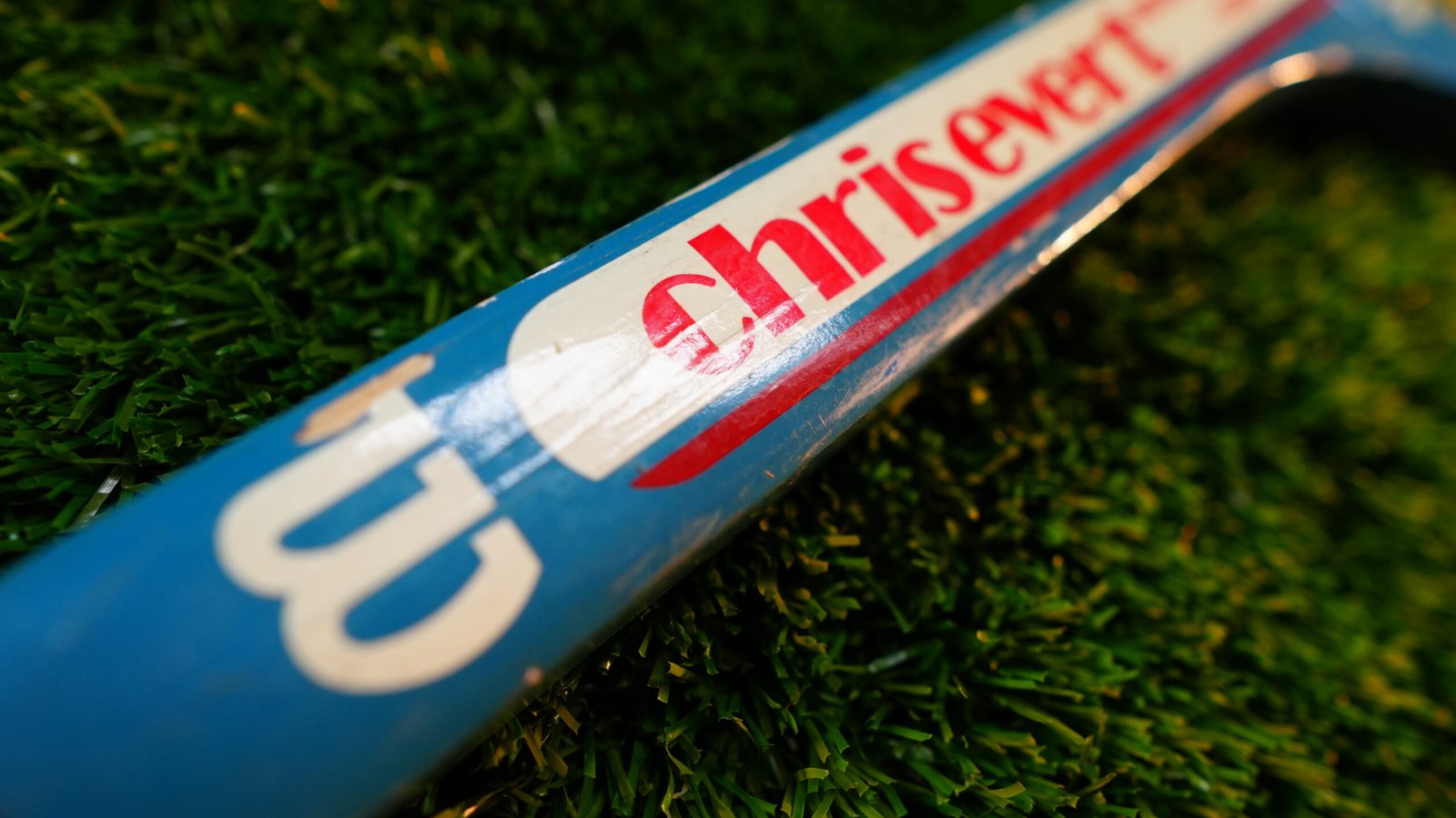Condition 4
10: New
9: Mint
8: Excellent
7: Good
6: Fair
5: Average
4: Below Average
3: Poor | Rarity 4
10: Impossibly rare
9: Extremely rare
8: Hard to find
7: Fairly rare
6: Uncommon
5: Common
<4: Big Seller
9: Mint
8: Excellent
7: Good
6: Fair
5: Average
4: Below Average
3: Poor
9: Extremely rare
8: Hard to find
7: Fairly rare
6: Uncommon
5: Common
<4: Big Seller
– – – – – – – – – – –
About This Racket
Wilson launched the Chris Evert Autograph racket in 1976, which Evert used until switching to the Wilson Pro Staff Mid in 1984. Chris Evert was known as America’s tennis sweetheart was the posterchild for Wilson as she used Wilson since her teens, initially the Wilson Billy Jean King model. Of course, following her early success Wilson couldn’t resist putting her name on as many rackets as possible.
To recap she became the first player to win 1000 singles matches and compiled the second most career match wins (1,309), behind Martina Navratilova, who won 1,442. She was ranked #1 or #2 in the world from 1975 to 1986. 1982 and 83 were not great years for Chris as she played with Wilson CE Autograph but Martina has switched early from the wood Yonex Carbonex to the synthetic R1 R7 R22 series. Despite this she beat Martina on grass at the 1982 Australian Open using wood. She ran her close at Wimbledon 1982 and even won three grand-slams in a row from 1982 to 1983 (on all surfaces of hard, grass and clay) when all her main rivals were playing with racket. In early 1984 she switched to Wilson Pro Staff wood. Chris finally moved to graphite two years later than everyone else (having spent her whole career playing wooden rackets it was difficult to change….the same happened to Borg). Chris really spent late 1984 growing into graphite, with the benefits appearing in 1985 towards the end of her illustrious career.
| Variants | ||||
|---|---|---|---|---|
| Autograph | Champ | Champion | Chris Evert | Cutlass |
| Court Star | Embassy | Lady Evert | Miss Chris | Monaco |
| Net King | Personal | Prestige | Pro | Pro Cup |
| Pro Staff | Professional | Sentry | Shot-maker | Select |
| Stylist | Signature | Triumph | Tournament | Topspin |
| Victory Cup | Rally | Advisory | American | American Star |
In this table, each column represents a different category, ensuring all
Historic Gallery
Specifications (👋 not yet accurate….check back soon)
| Measurements | Value | Performance | Score |
|---|---|---|---|
| Weight | 394g | Power | 33/100 |
| Head Size & Length | 68sq in | 27inch | Control | 28/100 |
| Balance | 8pt head light (220) | Spin | 26/100 |
| Grip | Perforated leather | Handling | 30/100 |
| Strings | 18 x 20 | gut | Comfort | 49/100 |
| Flexibility | RA 49 | Consistency | 33/100 |
Gallery
About Wilson
Wilson Sporting Goods Company traces its origins to the “Schwarzschild & Sulzberger” meatpacking company, founded in 1913 to utilize animal by-products, the company initially manufactured tennis racket strings, violin strings, and surgical sutures. By 1914, it expanded into producing baseball shoes and tennis racquets. Thomas E. Wilson, a former meatpacking president, was appointed in 1915, renaming the company “Thomas E. Wilson Company”. He steered the company into producing a variety of sporting goods, including footballs and basketballs.Wilson’s entry into the sporting goods industry was marked by innovation and strategic partnerships. In the 1920s, the company introduced the Ray Schalk catcher’s mitt and collaborated with Knute Rockne on football equipment. In 1931, it was renamed “Wilson Sporting Goods Company”. The company developed the Wilson Duke football, which became the official NFL ball in 1941, a partnership that continues to this day.Wilson’s influence in tennis began in earnest in the 1950s with the partnership with Jack Kramer, resulting in the Jack Kramer Autograph racquet. This racquet became one of the best-selling models of its time, used by numerous champions including Arthur Ashe and Billie Jean King. The 1960s saw further innovation with the introduction of the first steel racquet, the Wilson T2000, endorsed by Jimmy Connors.Wilson continued to innovate with the release of the Chris Evert Autograph racquet in 1975 and the introduction of wide body racquets in the 1980s. The company’s tennis balls became the official balls for the US Open in 1979 and the Australian Open in 2006. In 2021, Wilson returned as the official game ball supplier for the NBA and WNBA.
| YEAR | EVENT |
|---|---|
| 1868 | Thomas E. Wilson born in Ontario, Canada. |
| 1914 | Wilson Sporting Goods founded; first racquet crafted. |
| 1915 | Thomas E. Wilson appointed president; company renamed “Thomas E. Wilson Company”. |
| 1917 | Wilson’s catalogue included 28 racquet models. |
| 1922 | Introduced Ray Schalk catcher’s mitt, became the standard. |
| 1925 | Renamed “Wilson-Western Sporting Goods” after distribution agreement. |
| 1931 | Renamed “Wilson Sporting Goods Company”. |
| 1935 | Released original leather tennis handle wrap, Mahogany Leather Grip. |
| 1941 | Wilson Duke football becomes official ball of NFL. |
| 1946 | Becomes official game ball supplier for BAA (NBA predecessor). |
| 1950s | Officially partnered with Jack Kramer; created Jack Kramer Autograph racquet. |
| 1958 | Thomas E. Wilson passed away. |
| 1967 | Introduced first steel racquet, Wilson T2000. |
| 1969 | Released Billie Jean King Autograph racquet with Strata-Bow technology. |
| 1975 | Introduced Chris Evert Autograph racquet. |
| 1979 | Wilson tennis balls first used at the U.S. Open. |
| 1987 | Introduced Profile racquet, first wide body racquet. |
| 1990 | Introduced Hammer technology for recreational players. |
| 2006 | Wilson tennis balls began use at the Australian Open. |
| 2021 | Became official game ball supplier for NBA and WNBA. |








